Dialogue bridges shared future
The “Global South Dialogue ? China-Africa Roundtable Forum” is held in Johannesburg, South Africa on November 5, 2025. Photo: Chen Tao/GT
The “Global South Dialogue·China-Africa Roundtable Forum” was held in Johannesburg, South Africa, on Wednesday, where dozens of guests from Chinese and African political circles, academia and the media held in-depth exchanges on topics such as implementing the Global Governance Initiative, the role of the media, and China-Africa cooperation.
In his opening remarks, Zhang Wei, deputy editor-in-chief of the Global Times, said that this past October had witnessed the successful convening of the Fourth Plenary Session of the 20th Central Committee of the Communist Party of China. China’s efforts toward high-quality development, high-standard living, high-efficiency governance, and high-level opening-up have attracted global attention. The scale, resilience, and potential of China’s economy – likened to a “vast ocean” – along with China’s confidence, resolve, and capability to address risks and challenges, serve as a “reassurance pill” for the world economy. This will inject new impetus and bring new opportunities into the joint pursuit of modernization by China and Africa.
Phindile Mkwanazi, acting principal with the National School of Government of South Africa, said in her opening remarks that Wednesday’s dialogue is a step in that direction. “It reminds us that the Global South is not just a geographic concept. It is a logical and political space,” she said. “This dialogue is not an end in itself. It’s part of the growing network of reflection, resolved and informed. Moreover, it is through such connection between media and government, between South Africa and China that we can build more accountable, inclusive governance for all.”
Busani Ngcaweni, director of the Center for Public Policy and African Studies at the University of Johannesburg, said in his opening remarks that the Global Governance Initiative, proposed recently by China, presents a framework for a more inclusive and equitable international system, rooted in principles of sovereign equality, shared development and mutual respect. It challenges hegemonic tendencies by advocating for multi-centered governance and calls for a renewed commitment to international law that serves all nations, not just the powerful.
Pinky Sharon Kekana, deputy minister for Public Service Administration of South Africa, said in a keynote speech that dialogue is a key feature in the foreign policy of South Africa and China toward promotion of mutual understanding and mutual respect to resolve conflicts that are increasingly threatening global prosperity. Dialogue represents our strong belief in embracing different civilizations and their knowledge in the construction of national and global prosperity.
“We must continue to embrace values of credibility, service, and commitment to our people. Through our partnership in dialogues such as this, and through the convergence of media, governance, and citizen participation, we can build a peaceful, democratic, and prosperous Global South for current and future generations,” Kekana said.
In his keynote speech, Qin Zhanpeng, minister counsellor of the Chinese Embassy in South Africa, stated that this year marks the 25th anniversary of the establishment of the Forum on China-Africa Cooperation (FOCAC). China has upgraded its bilateral relations with all African countries that have diplomatic relations with it to the strategic level, and the overall positioning of China-Africa relations has been elevated to the All-Weather China-Africa Community with a Shared Future for the New Era. This is the first time that the concept of “a community with a shared future for humanity” has reached the “all-weather” level on an entire continent.
The forum has set three thematic sessions, namely “Establishing Collective Consensus: China-Africa Vision in Advancing Global Governance Initiative and the Global South Influence”; “Shaping Shared Discourse: China-Africa Media in Promoting Development and Prosperity”; and “Building Joint Capacity: China-Africa Cooperation in Agriculture, Trade, and Technological Innovation.”
Establishing collective consensus
The global governance system is undergoing profound transformation. The first panel focused on strategic coordination and institutional innovation between China and Africa under the framework of the Global Governance Initiative, promoting development rights, equity, and inclusiveness as shared global values. It highlighted the joint efforts of China and Africa to build a more representative and inclusive global governance system, and explored how countries of the Global South can reshape balance and justice in the international order through unity and cooperation.
Zhang said that “last month, we marked the 80th anniversary of the founding of the United Nations (UN). 80 years ago, drawing profound lessons from history, the international community, with the aspiration to ‘save succeeding generations from the scourge of war, which twice in our lifetime has brought untold sorrow to mankind,’ established the UN. Over the past eight decades, the international system centered on the UN has underpinned world peace and development, while the concept of multilateralism based on coordination and cooperation has increasingly taken root in people’s minds.
However, 80 years later, the international landscape remains fraught with chaos. Acts of power politics and bullying have inflicted severe harm, and global challenges are intensifying. Never before has the world so strongly called for a more just, equitable and inclusive global governance system. When it comes to addressing the questions posed by the era regarding global governance, countries of the Global South, along with their media outlets and think tanks, have an inescapable responsibility, Zhang noted.
“The series of global initiatives proposed by the Chinese leader have charted a path for South Africa to achieve such synergy – this synergy should permeate all sectors of society, and its purpose is by no means to highlight the superiority of any party, but to advance the modernization process of various countries based on their national conditions. Contemporary global civilizations are not moving toward division and confrontation. Therefore, as developing members of the Global South, we should uphold the spirit of the Global Civilization Initiative, enabling every country to clearly voice its stance and deliver joint outcomes through equal cooperation,” said Paul Tembe, founder and director of SELE Encounters, at the forum.
Bongani Mayimele, director of the International Relations and Partnerships with National School of Government in South Africa, noted that the Global South must have a voice in shaping sustainable development, which should no longer be a hollow slogan but take concrete form and context, embrace pluralism, and draw on diverse civilizations to end poverty and achieve equitable development.
“Developing countries should enjoy freedom of thought and the right to choose their own development paths,” said Mayimele.
Shaping shared discourse
The media not only disseminate information but also foster policy dialogue, mutual learning, and people-to-people understanding, becoming a vital force for shared development. The second panel examined how China-Africa media cooperation can empower development agendas through joint reporting, news exchanges, and digital innovation. It also explored how such collaboration can serve as the foundation for a stronger Global South communication network, telling the stories of the Global South more effectively on the global stage.
Yang Ou, president of the African General Bureau of the People’s Daily, said the media serves as a bridge for information dissemination and is an envoy for cultural exchange. Strengthening dialogue and exchanges and deepening communication cooperation between Chinese and African media can not only showcase the fruitful achievements of China-Africa cooperation, but also help consolidate the social and public opinion foundation for China-Africa friendship.
Ayanda Holo, president of TV BRICS AFRICA, said that the Global South is not just asking for a voice; it is creating the tools, teams, and channels to speak for itself. As BRICS leaders said, we must stay true to our values and focus on real steps – unity built through systems, and ideals put into daily life. The collective rise of the Global South is a distinctive feature of the great transformation across the world.
Kirtan Bhana, founding editor of the Diplomatic Society in South Africa, noted that the Global South is not a direction on a map, but a moral compass, a perspective that affirms our shared humanity in a time of division. “Let the Global South not be remembered as a coalition of complaint, but as a community of courage; not as an alternative to the world, but as an imagination that reshaped it. The future does not belong to the North or the South, but belongs to all who have a vision and the will to build it together.”
Lucky Mathebula, founder of the Thinc Foundation and columnist for the Sunday Times, said that media experts should put more effort in reporting on global “zones of excellence” where human dignity, social and economic justice, and human rights are thriving. “For instance, China’s achievement in lifting around 800 million people to a higher per capital income level is a remarkable zone of excellence, and we need to be reporting on how this was accomplished,” Mathebula said.
Theto Mahlakoana, multidimensional policy strategist at the Centre for Public Policy with the University of Johannesburg, said that she wishes in the future, when the world looks to the Global South, it will no longer see fragmentation or competition, but a network of nations communicating progress through partnership.
Brett Lyndall Singh, CEO of AOM Group and Brand South Africa PYP Ambassador, believes that as close partners with a historical foundation of cooperation, China and South Africa must join hands to create opportunities. “We call on colleagues in this field to collaborate closely, connect with purpose, and turn ideas into tangible outcomes,” added Singh.
Building joint capacity
Participants at the “Global South Dialogue ? China-Africa Roundtable Forum” in Johannesburg, South Africa on November 5, 2025. Photo: Chen Tao/GT
Capacity building is a key driver of China-Africa cooperation and a cornerstone for achieving mutual benefit and sustainable growth. The third panel focused on practical cooperation in agricultural modernization, trade connectivity, and scientific and technological innovation. It explored how both sides can enhance policy alignment, share experiences, and exchange technologies to strengthen industrial collaboration and talent development.
Tang Yingchu, chairman of China State Construction Engineering Corporation (Southern and Eastern Africa), said that as an enterprise, CSCEC development in Southern Africa aims for high-quality growth – create more jobs and provide a better development platform for local construction companies across the entire industrial chain, which constitutes contribution to the economic development of host countries.
“In South Africa, we provide fence construction and recreational facility renovation services for local orphanages; in Botswana, we maintain village roads damaged by heavy rains; in Namibia, we supply hardware facilities for safe havens. Such sincere interactions have made the company and China trusted friends in Africa,” he said.
Aysegul Kandas, former Turkish Ambassador to South Africa, Eswatini, and Lesotho, said that both China and African states must pursue deeper institutionalization and local ownership. It is important to localize technology and adapt to local contexts, strengthening local management capacity and ensuring the financial sustainability of demonstration centers.
Elizabeth Shawa Mangani, lecturer at the Center for Public Policy and African Studies with the University of Johannesburg, based on her research, pointed out that young people in Africa mostly regard agriculture as a “second choice,” mainly because it is perceived as unprofitable, outdated and disconnected from technology, coupled with issues like unstable income and low social recognition. She believed that China-Africa cooperation should focus on reshaping agriculture’s image, using the media to spread images and concepts of China’s smart agriculture and technology-empowered farming to attract young people to engage in the sector.
Liu Zhaoyi, director at the South Africa Branch of the Institute of African Studies of Zhejiang Normal University, also director at the Sino-Africa Cooperation (SAC) Think Tank in South Africa, said that China’s “common prosperity” is not merely an economic goal but a moral and social principle of inclusiveness, equity, and justice. The ancient Chinese concept of “Tianxia Datong” (Great Harmony) points to a higher moral world order based on coexistence rather than domination; and harmony in diversity rather than uniformity. The spirit of China-Africa cooperation resonates deeply with “Great Harmony” – the two sides do not seek to dominate each other but strive to jointly build a fairer, more balanced, and more dignified future for all humanity.
Wang Han, brand and marketing director at the Hisense South Africa, said that currently 70 percent of the management positions in the park of Hisense are held by South African employees – they have not only mastered advanced manufacturing technologies but also become the backbone driving the upgrading of local industries. “Africa’s future is full of hope, and ‘capacity co-building’ is precisely the key to realizing this hope,” Wang said.
globaltimes.cn

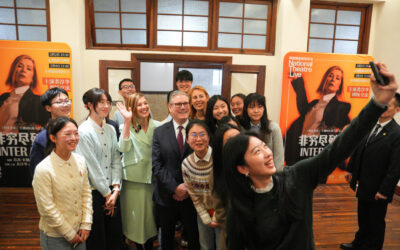
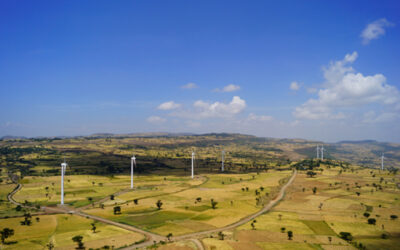
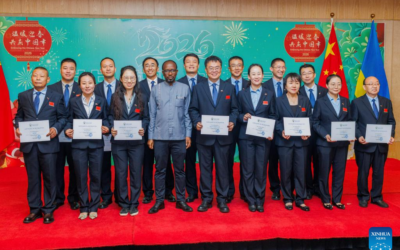

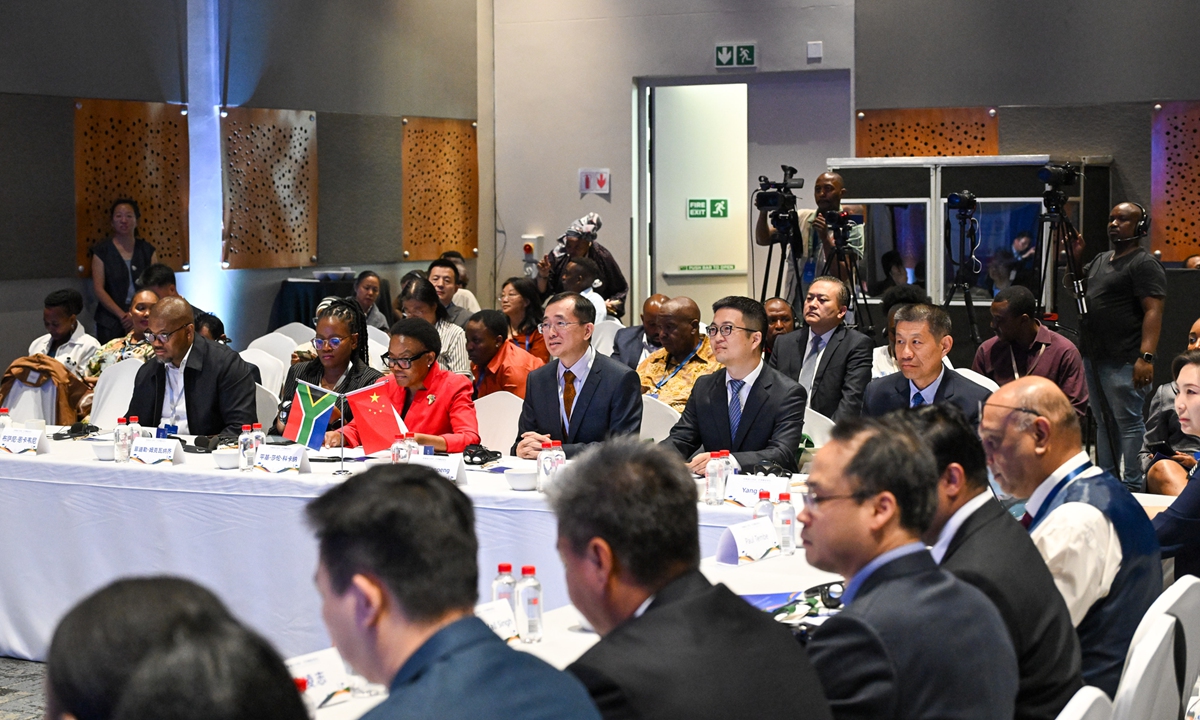

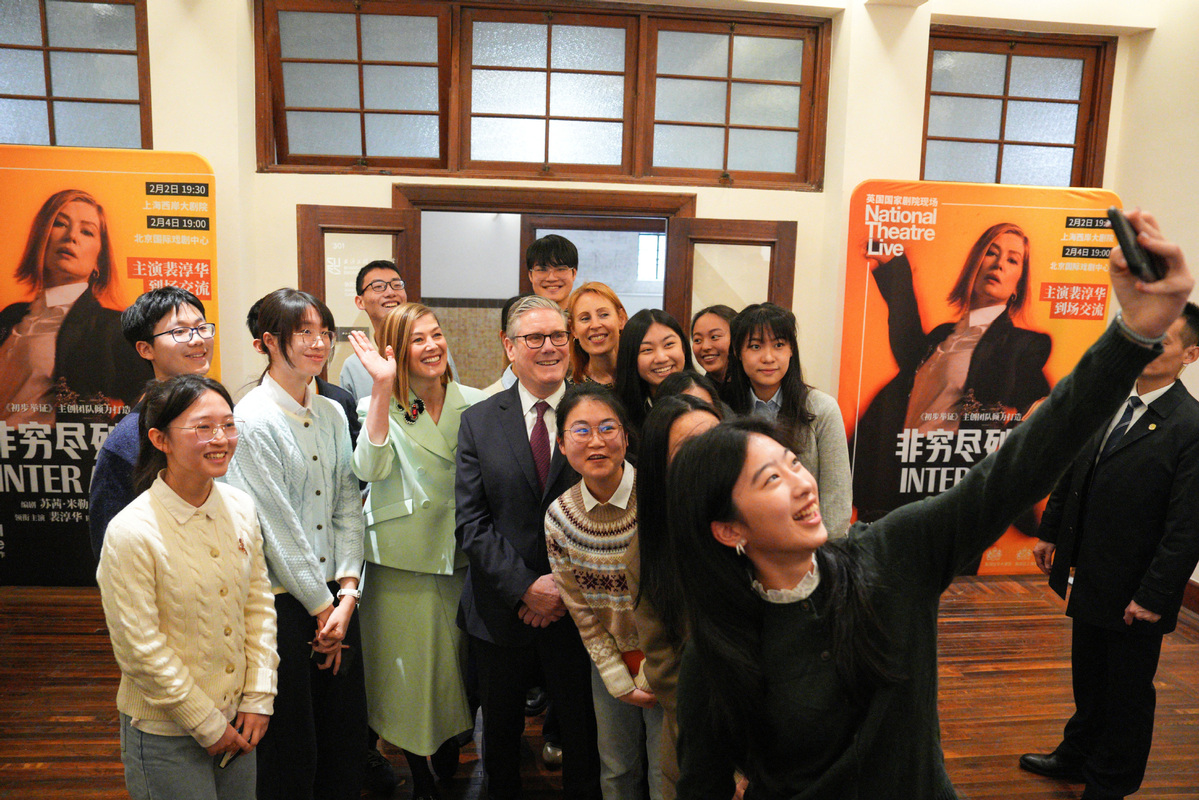
услуги экскаватора погрузчика https://arenda-ekskavatora-pogruzchika-5.ru .
В этом интересном тексте собраны обширные сведения, которые помогут вам понять различные аспекты обсуждаемой темы. Мы разбираем детали и факты, делая акцент на важности каждого элемента. Не упустите возможность расширить свои знания и взглянуть на мир по-новому!
Ознакомиться с полной информацией – https://primenewsnet.com/style-spy-fashion-model-goes-casual-in-faux-furr-and-plaid
купить диплом аттестат в новосибирске http://r-diploma18.ru/ .
Лечение наркомании в Омске является сложным медицинским процессом, требующим комплексного подхода и участия квалифицированных специалистов. Современная наркологическая клиника «Ренессанс» предлагает полный спектр услуг, направленных на восстановление физического и психического здоровья пациентов с различными формами наркотической зависимости. В клинике используются доказанные методы терапии, которые обеспечивают стабильную ремиссию и помогают вернуться к полноценной жизни.
Подробнее – https://lechenie-narkomanii-omsk0.ru
55aabet is pretty slick. Love the variety of betting options. Withdrawals were reasonably fast too. No complaints so far. Check it out 55aabet!
купить аттестат за 9 класс в москве купить аттестат за 9 класс в москве .
Всё о строительстве, дизайне и ремонте в своём доме.
Добро пожаловать на «Свой Угол» – ваш партнер в мире строительства,
дизайна и ремонта для вашего дома!
Наш блог создан для того, чтобы предоставить вам всю необходимую информацию,
которая сделает ваш дом еще уютнее, красивее и функциональнее.
Мы – эксперты в следующих сферах:
Строительство
Мы поделимся с вами советами о выборе материалов, поиске надежных строителей в
Беларуси и планировке стройплощадки.
Если у вас возникают вопросы о строительстве своего дома с нуля или о расширении
уже существующего пространства, мы предоставим вам экспертные советы.
Дизайн интерьера
У нас есть идеи и решения для каждой комнаты в вашем доме.
Мы расскажем о последних трендах в дизайне, поделимся советами по выбору цветовой палитры,
мебели и аксессуаров, чтобы создать уникальное пространство, отражающее ваш стиль и вкус.
Ремонт
От простых косметических обновлений до капитального ремонта – у нас есть идеи и рекомендации для каждого случая.
Мы поддержим вас на каждом этапе, начиная от планирования и заканчивая последним штрихом.
Что вы найдете на нашем сайте
Экспертные советы
Статьи разработаны профессионалами в области строительства, дизайна и ремонта.
Полезные ресурсы
Ссылки на проверенные магазины, услуги и материалы, которые помогут вам в ваших проектах.
Модные тренды
Мы следим за последними тенденциями и новинками в мире строительства и дизайна.
«Свой Угол» – ваш проводник в мире уюта и стиля в вашем доме. Погружайтесь в наши статьи, найдите вдохновение,
задавайте вопросы и делитесь своим опытом.
Создайте свой угол вместе с нами!
Информационный портал «Свой Угол»
Мы не составляем «супер-смеси» «на всякий случай». Капельница — это набор модулей, каждый из которых отвечает за конкретную задачу: гидратация, электролиты, гастропротекция, антиоксидантная поддержка; при показаниях — мягкая анксиолитика. Порядок модулей зависит от ведущего симптом-кластера и времени суток.
Получить дополнительные сведения – https://kapelnicza-ot-zapoya-murmansk15.ru/kapelnicza-ot-pokhmelya-murmansk/
Реабилитация после запоя в Люберцах. Мы поможем вам восстановиться после запоя и предотвратить рецидивы.
Детальнее – вызвать капельницу от запоя на дому в люберцах
Вывод из запоя у подростков в Люберцах. Мы предлагаем специализированное лечение для подростков, учитывая их возрастные особенности.
Исследовать вопрос подробнее – вызвать капельницу от запоя люберцы
купить диплом о высшем образовании отзывы в краснодаре https://r-diploma16.ru/ .
Особенность подхода заключается в сочетании медицинской и психологической поддержки. После кодирования пациент получает консультации психотерапевта, рекомендации по восстановлению и профилактике рецидивов. Это снижает риск повторного срыва и помогает закрепить результат на долгий срок.
Углубиться в тему – кодирование от алкоголизма цена адреса в волгограде
«Чистая Гармония» — это выездная и стационарная наркологическая помощь в одном маршруте: оперативный приезд врача на дом по Клину и району, аккуратный детокс с контролем жизненно важных показателей, стационар с круглосуточным наблюдением и подготовка к кодированию. Мы придерживаемся принципа клинической достаточности: никаких лишних процедур ради «видимости лечения» и никаких задержек с тем, что влияет на исход. Каждое назначение объясняем простыми словами, заранее согласуем смету и оставляем понятный план на 24–48 часов и первую неделю. Анонимность — базовый стандарт: выезд без опознавательных знаков, нейтральные формулировки в документах по запросу, ограниченный доступ к данным.
Разобраться лучше – http://narkologicheskaya-klinika-klin8.ru/
Комплексное лечение помогает восстановить работу печени, сердца и нервной системы. Пациенты отмечают улучшение сна, снижение тревожности, нормализацию давления и аппетита уже спустя несколько часов после начала терапии. В зависимости от тяжести состояния курс может быть продлён до 2–3 дней с круглосуточным наблюдением и корректировкой дозировок.
Детальнее – срочный вывод из запоя волгоград
купить диплом и сертификат фармацевта купить диплом и сертификат фармацевта .
купить диплен пленку в москве https://r-diploma27.ru .
Die Simsino Casino Registrierung ist einfach und ermöglicht es neuen Spielern, ihren Willkommensbonus schnell in Anspruch zu nehmen. Jede der
25 Treuestufen bietet Auszahlungsvorteile von bis zu 25%, Freispiele und andere exklusive Preise wie
echtes Bargeld. Außerdem vergibt das Casino 140 Freispiele,
die Sie sieben Tage lang nach Ihrer Einzahlung in 20er-Paketen erhalten. Zusätzlich erhalten Sie 110 Freispiele für das Spielen von Rich Wilde und The Tome of
Madness von Play’n GO oder Book of Shadows von Nolimit City, je nach Region.
Zwar werden nicht viele Boni angeboten, aber dafür bietet das Casino jedem Spieler eine erstklassige Casino-Umgebung.
Nein, Simsinos bietet derzeit keine dedizierte App zum Herunterladen an.
Die mobile Webseite von Simsinos bietet eine vollständige Casino-Erfahrung ohne die Notwendigkeit eines App-Downloads.
Spieler können einfach über ihren mobilen Browser auf das
Casino zugreifen und finden eine optimierte Seite vor,
die alle Desktop-Funktionen enthält.
Das finden wir weniger gut geeignet, denn so werden dieselben Spielekategorien für diese unterschiedlichen Spielarten verwendet.
Beim Bonusguthaben-Teil des Einzahlungsbonus hingegen gibt es kein Gewinnlimit.
Die Besonderheit dieses Neukundenbonus ist, dass es keine Umsatzbedingungen gibt.
Der Willkommensbonus steht bei Kryptowährung
somit nicht zur Auswahl. Die des zweiten Einzahlungsbonus werden wiederum über 7 Tage hinweg
zu jeweils 20 Stück für den Slot Rise
of Merlin gutgeschrieben. Die ersten 110 Freispiele für Rich
Wilde and The Tome of Madness werden sofort gutgeschrieben.
References:
https://online-spielhallen.de/umfassende-legzo-casino-bewertung-ein-spielerbericht/
Karmaşık konuları açıklama yeteneğin var.
Find the best PayID casino with instant withdrawal!
If you feel that you may have a gambling problem, support is always available.
Finally, ensure that you are aware of the many different resources that exist to help those who may
be unable to control their gambling problem. If you are unsure, use other player reviews to verify
this before proceeding.
When it comes to categorisation, though, hardly any other casino
can match this level. You can, for example, skip the free spins entirely and
go for a 125% match bonus up to A$375 instead. The welcome package comes with a 30x wagering requirement,
which is among the best bonus terms in the industry.
It follows its King and royal court theme to the dot, and every detail,
from the game lobbies to the loyalty structure,
is built around this royal concept. It’s not just
some random casino that uses some generic name and theme, but they actually put effort into it.
References:
https://blackcoin.co/what-is-a-high-roller-best-high-roller-online-casinos/
Casinos offer various options to promote responsible play and ensure a safe and
enjoyable gaming experience. When engaging in gambling for real money, it’s essential to prioritize responsible
gambling practices. Select a game that interests
you and suits your bankroll and start playing! Sign up and create a new account at the chosen online casino.
When you’re on the lookout for the best online casino experience, keep an eye out
for these online casino fast payout options. So,
if you’re all about the thrill of the spin, the
excitement of the features and the chance to strike it lucky, pokies
casinos are your kind of playground. If you’re after the vibe of a social casino but want to enjoy it from the comfort of your own home, live casinos are the go.
References:
https://blackcoin.co/13_vip-slots-casino-review-2022_rewrite_1/
I don’t think the title of your article matches the content lol. Just kidding, mainly because I had some doubts after reading the article. https://www.binance.info/tr/register?ref=MST5ZREF
best online casino usa paypal
References:
dreamyourjobs.com
paypal online casinos
References:
https://skillproper.com
Sex
Bedpage feels like a platform that understands user needs. Browsing female escort services or erotic massage options is smooth and stress-free. The layout supports easy decision-making. Many people share good experiences because the process feels natural. If you want to explore Miami offerings, Escorts in Miami is a solid example.
I needed to compose you this very small note to be able to thank you very much yet again considering the nice information you’ve shared in this article. This has been certainly surprisingly open-handed of you to supply unreservedly precisely what a lot of people would’ve offered as an e book to earn some bucks for their own end, principally now that you could possibly have done it if you considered necessary. The creative ideas likewise acted like a fantastic way to understand that many people have the identical passion similar to my very own to understand good deal more around this issue. I believe there are numerous more pleasurable sessions in the future for individuals who read your blog post.
Can you be more specific about the content of your article? After reading it, I still have some doubts. Hope you can help me.
愛壹帆海外版,专为华人打造的高清视频官方认证平台,支持全球加速观看。
Thank you for your sharing. I am worried that I lack creative ideas. It is your article that makes me full of hope. Thank you. But, I have a question, can you help me? https://accounts.binance.info/fr/register-person?ref=T7KCZASX
Wow that was unusual. I just wrote an extremely long comment but after I clicked submit my comment didn’t show up. Grrrr… well I’m not writing all that over again. Anyhow, just wanted to say fantastic blog!
Escorttime continues to offer a calm, organized, and client-focused service. I booked a female escort for an erotic massage and appreciated the straightforward process. Escorttime Word reflects dependability because the experience matched what was outlined. Communication stayed polite and discreet throughout. Escorttime maintains a professional standard. Anyone considering Female Escorts in Los Angeles will find this platform trustworthy.